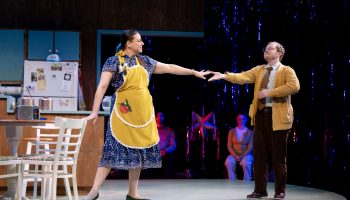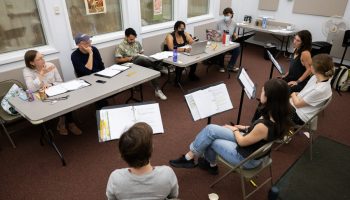DAVID KWIATKOWSKI – STAFF WRITER
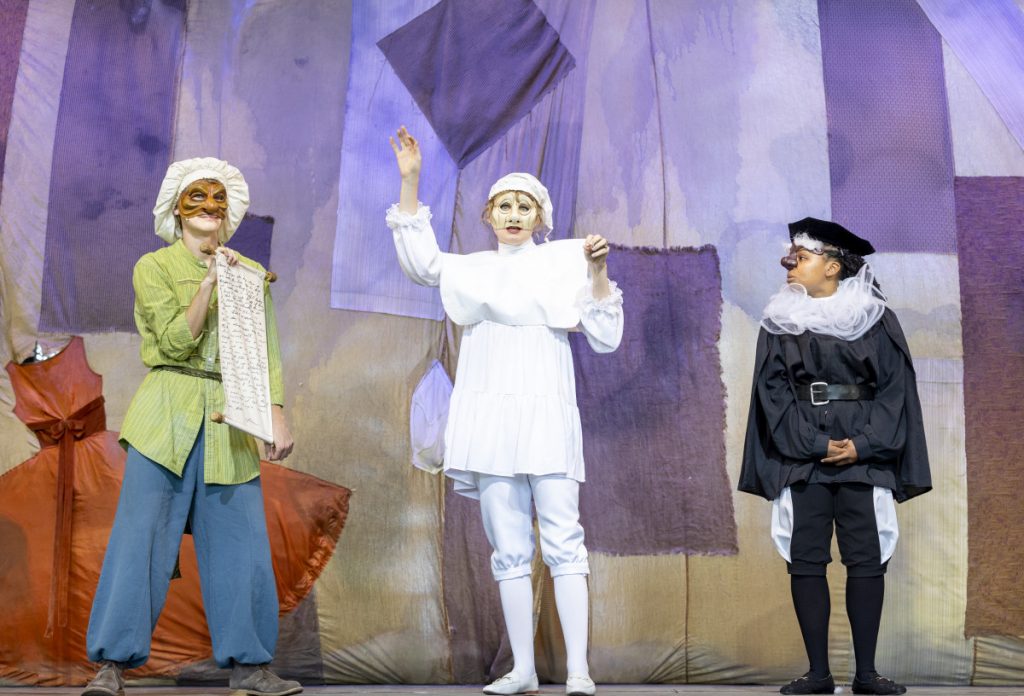
Some actors debate whether or not comedy or drama is more challenging. Some actors are marvelous at both, but it cannot be debated that the hardest form of theater is one without a script.
This is exactly the case for Chautauqua Theater Company’s self-produced improv comedy show Commedia, which continues its run at 4 p.m. today at the Performance Pavilion on Pratt.
Based on the 16th-century Italian art form commedia dell’arte, the show is fully improvised, and each show will be different based on how the actors take the scenarios.
CTC Conservatory actor Christopher Portley, who portrays Flavio and Zanni in the show, has taken improv classes in his master of fine arts program at Case Western Reserve University, but he has never done it to the extent that Commedia requires.
“It is scary,” Portley said. “It’s also something so liberating. There’s a type of bravery that you have to have just to put yourself out there like that. I think the best thing that I’ve learned about improv with this is to release control, because it doesn’t help to be logical with improv. It’s been a great time; I’ve just really submerged myself into it.”
Commedia dell’arte is known for the masks that the characters wear, which help the actors fully get into character.
“When we get into the masks, it’s so interesting, because the masks, at least for me, when I put it on, it informs (me) and (my) body of what it’s going to be. … It’s a creation from beginning to end, and it’s still going,” Portley said. “It’s not a finished product.”
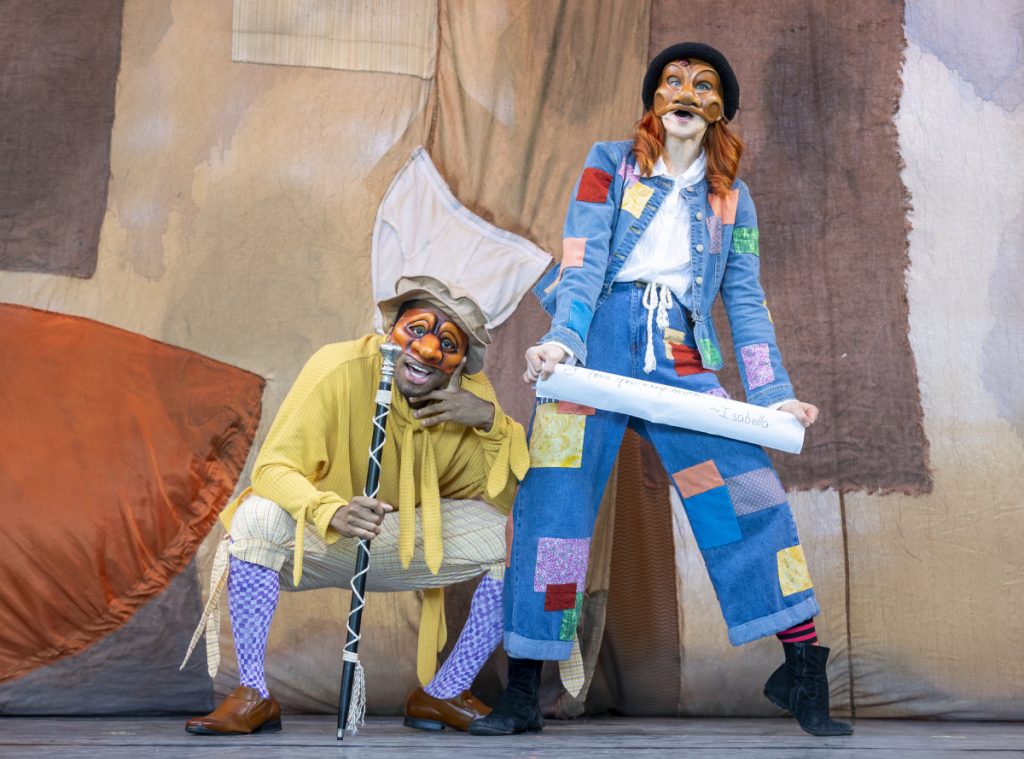
Conservatory actor Daphne Kinard, who portrays Madame Pantalone and Tartaglia in the show, had improv experience in her college theater troupe.
“I felt like it gave me a solid base for a lot of the comedic plays I have done since then,” Kinard said. “I never thought that I’d be doing improv in any sort of professional context. I certainly didn’t think I’d ever be doing improv in front of 400 people. … It’s not unfamiliar, it’s just bigger.”
Although her experience in improv helps her with comedic timing, she said, the audiences are starkly different than the ones she used to perform for in college.
“It’s hard to know what everybody’s type of humor is and what lands and what doesn’t work,” Kinard said. “… The scariest part is the few steps out on stage, but once the first line comes out of your mouth, you have to let it all go. You can’t think about it at all — (about) anything that you thought backstage, or what will maybe be funny or good. It all goes out the window. It’s so hard to remember anything you thought of before. You can’t take it home. You can’t do homework. In a way, that’s kind of freeing.”
In a way, every show is a rehearsal and characters are still being developed while on stage. For instance, Kinard got the suggestion from Artistic Director Andrew Borba to make Tartaglia louder, which was something she was trying in rehearsal to make her castmates break into laughter.
“It completely changed everything I do for that entire character,” Kinard said. “It wasn’t totally out of nowhere. But, like so many other things in the play, I tried to do something just to mess with my castmates and be funny in the room. It ended up being funny to the audience, too, so it ended up making it into the play.”
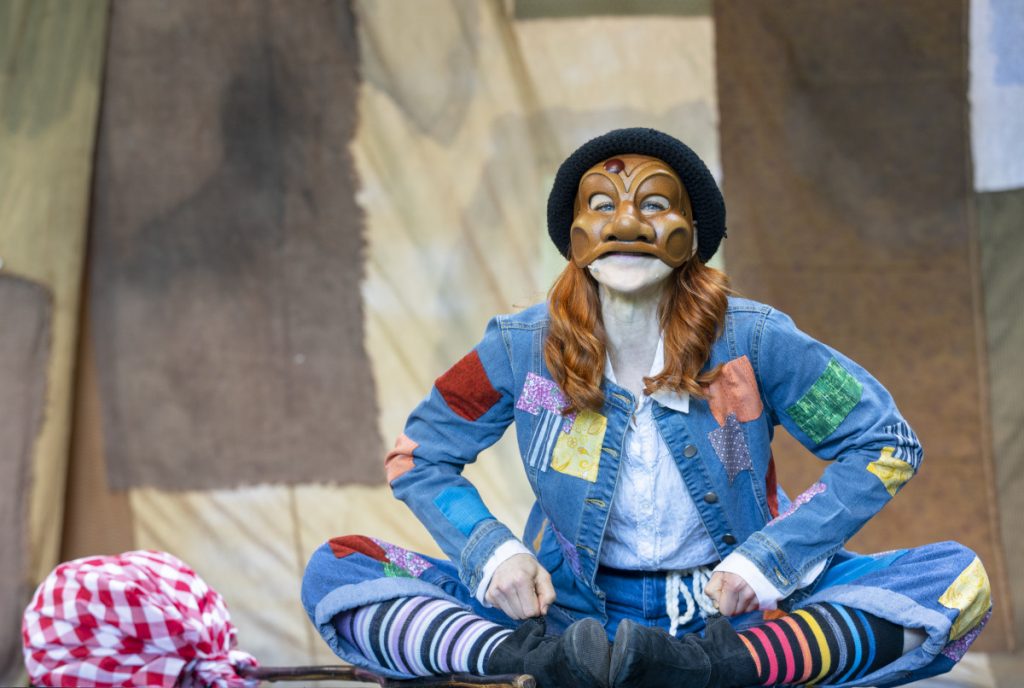
Portley also learns more about his characters every day, specifically Zanni.
“He is me when no one is watching,” Portley said. “I love playing Zanni because I just got to not think. He’s a character that is so much a free spirit, even though he is the lowest of the low as far as social rank goes. He doesn’t let that stop him being mischievous, lustful, desirable, all the things wrapped up in one. … You never know what you’re going to get with Zanni. I like that because he surprises me every day and tells me something different.”
The show, while inspired by an ancient art form, is a timeless reminder of the power of improv comedy.
“I think that it’s a bit of a celebration of how live theater can be,” Kinard said. “It’s something that you can’t get on TV or in movies. It’s a different show every single night, radically different jokes every single night, and really interacting with the audience more and more every single night as we get used to the audience, playing off them and being in the community.”
Since there is no script, there is no real expectation one should have before coming to see the show.
“Don’t go in there thinking this is going to be a story that you can follow,” Portley said. “Go in there with expectations of just having a good time. Come to relax, come to get laughs and come to have a good time. It’s going to take you for a wild ride. Just be open to it.”



